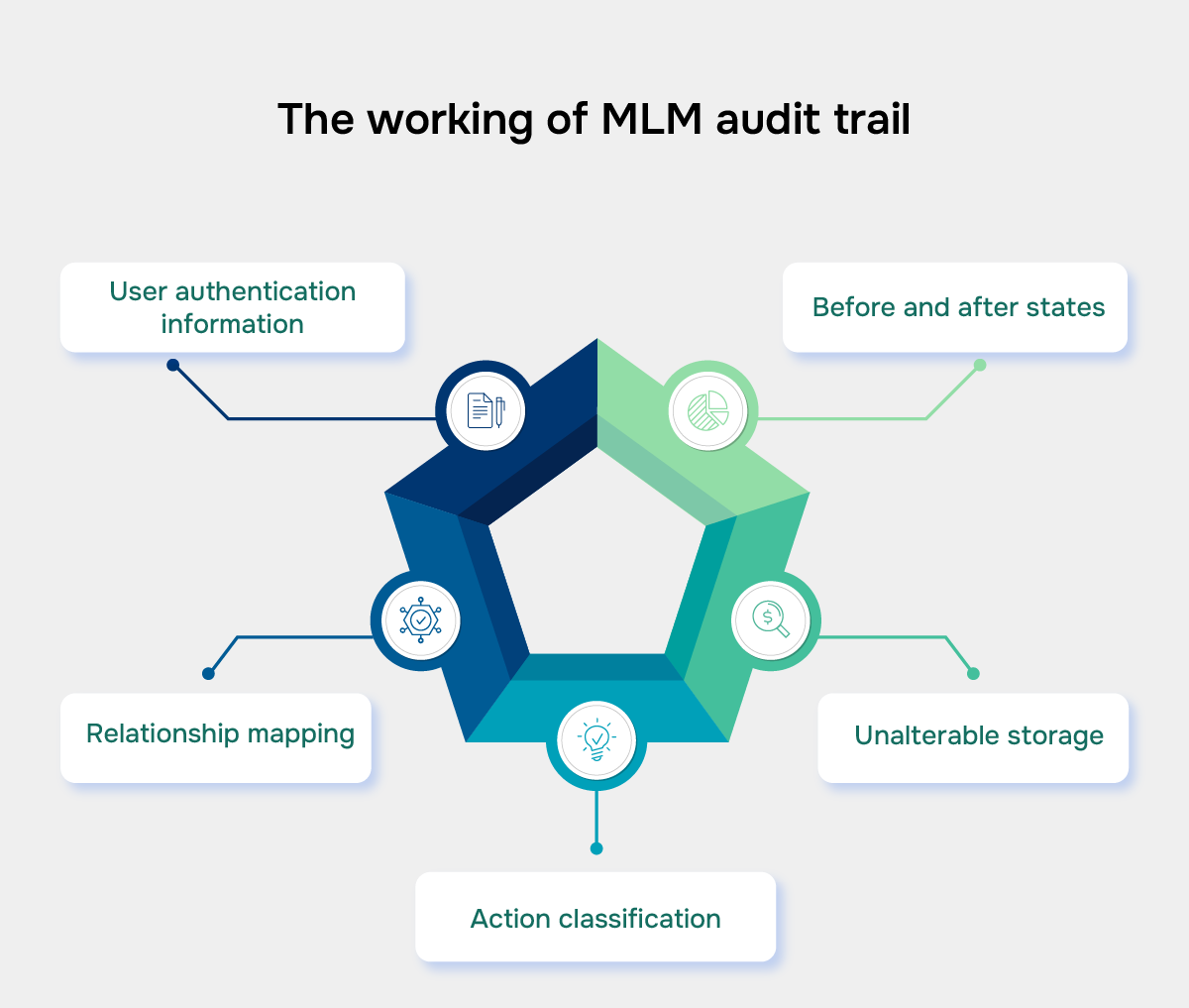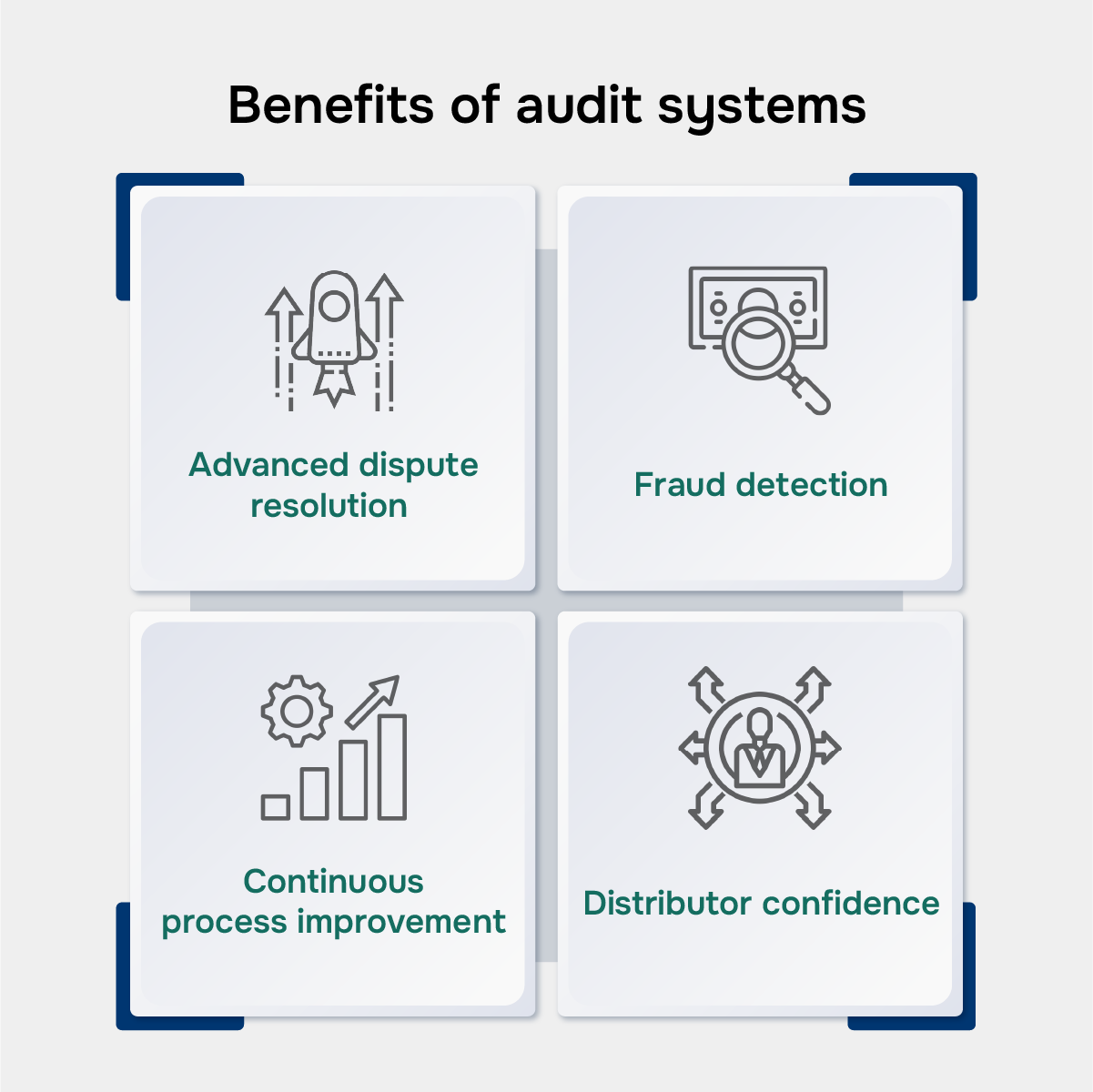Every MLM business operation requires absolute trust alongside complete transparency. This is the reason why audit trails serve as an essential requirement for your business. Companies can achieve security and compliance objectives by using audit trails to discreetly track all business transactions. The following article clearly explains how audit trails work to enhance your business expansion and progress.
The evolution of audit trails
During the past few years, the direct selling industry underwent significant developments. Former paper-based records progressed to develop complex digital tracking systems. Through these smart systems, you can easily track detailed compensation plans, which involve multiple complex transactions.
Audit trail systems have become an essential component for successful multi-level marketing organizations to track network distributor actions and transactions. These technical logging systems create unmodifiable records for distributor activities, payment procedures, rank promotions, and commission calculations. By integrating advanced MLM software with inbuilt audit trail systems, businesses can enhance data security and ensure seamless compliance with industry regulations.
The working mechanism of an effective MLM audit trail
Auditing systems that provide greater efficacy implement more than just minimal change tracking features. They create exact, detailed records that incorporate multiple essential items.

User authentication information
Every record accurately documents each and every user information, including username and IP address along with timestamps. This helps to avoid uncertainty about user accountability.
Before and after states
Advanced audit mechanisms quantify the entirety of data status, including points of origin and points of resolution. This enables the provision of vital background facts regarding significant alterations that occurred.
Action classification
Any event that was recorded will be categorized according to its creation time, modification time, deletion, and degree of significance. This facilitates easy examination and analysis process.
Relationship mapping
Relationship mapping allows reviewers to see how individual compensation gestures and events affect one another and create effects across your compensation models.
Unalterable storage
High-level storage solutions bar any alterations to records once they have been originally created. This preserves higher levels of credibility.
"The difference between basic logging and true audit capability might seem subtle, but it's actually profound," notes Melissa Carpenter, a successful network marketing professional. "Basic logs tell you something happened; comprehensive audit trails tell the complete story of why it happened, who was involved, and what resulted—the difference between confusion and clarity when issues arise."
Strategic benefits of advanced audit systems
The strategic worth of audit trails goes beyond regulatory compliance because they can deliver benefits that exceed basic requirements. Through a comprehensive audit trail, businesses can transform various operational aspects.

Dispute resolution excellence
During times of commission queries, the availability of an instant commission history helps to both speed up resolution times and enhance distributor satisfaction. Your support team can work more efficiently through this capability.
Fraud detection and prevention
Advanced audit data analysis helps find improper financial activities during their early stages. As a result, you can prevent their growth into major issues. Innovative early detection methods have produced great financial savings since they uncover non-routine activities that human supervisors often fail to identify.
Continuous process improvement
The detailed audit trails help organizations identify operational workflow weaknesses to find improvements. This will boost their system performance alongside user experiences.
Build distributor confidence
The practice of openly sharing commission calculations and ranking methods develops an environment of honest dealing. This leads to the recruitment and maintenance of responsible distributors.
Implementation strategies for improved efficiency
To establish successful audit trail systems, one must plan them carefully for their practical deployment. Industry leaders state that organizations should direct their efforts toward these essential success factors.
Comprehensive coverage
A complete audit system design requires inclusion of each important business process, other than the obvious transactions. Most compliance issues that damage your operation stem from under-monitored business areas.
Contextual richness
Your system configuration needs to record both modified data points along with an explanation about the reasons behind these modifications. These reason codes and explanatory notes serve as vital information sources to investigators throughout their examination.
Visualization capabilities
Scanning and displaying audit data often becomes challenging due to its complex raw form. Your organization should invest in visualization tools that convert data into simple clear visual displays, which rapidly identify both patterns and suspicious activities.
Retention policies
Create specific policy statements to determine the time duration for retaining audit records of various categories. Prolonged retention of specific data types becomes necessary under strategic business requirements, which go beyond the minimum terms specified by regulatory standards.
Access controls
Carefully manage who can see and export audit data, establishing proper separation of duties yet making sure that oversight responsibilities can be met effectively.
Discover how we build resilient businesses with advanced MLM functionalities
The future of audit trails in the field of network marketing
The emerging audit technology developments show increasing possibilities of improving the transparency and accountability levels of multi-level marketing organizations.
Blockchain integration
Some progressive companies use blockchain systems for making unalterable audit trails that distribute independent verification. This improves distributor and regulatory confidence.
AI analysis
AI analysis systems now have the capability to read audit information for identifying patterns that signal potential compliance risks or operational inefficiencies. This enables human reviewers to deal with these problems ahead of escalation.
Cross-platform consolidation
Consolidation of audit systems across platforms has become a necessity since MLM firms employ specific software services.
Real-time monitoring for compliance
The usage of real-time monitoring systems presently facilitates the instant alerting of compliance teams regarding probable distress. This allows for the possibility of instantaneous action.
Key takeaways
Sophisticated technology lays the foundation for robust audit trails. Nevertheless, actual implementation efforts carried out by humans determine their real value. Audit capabilities will act as strategic assets when organizations are more concerned with open and transparent cultures.
Currently, network marketing business owners require strong audit trail services since they are essential risk management tools for managing the complex regulatory landscape. The quick production of open records regarding your commitment will provide excellent protection, should direct selling regulation increase at state and federal levels.
Successful MLM leaders understand that audit trails provide functions that extend way past record maintenance functions. Trust-building tools demonstrate your dedication to accuracy and fairness as well as your commitment to accountability which appeals to modern sophisticated business partners and consumer base. This openness advantage drives successful business growth because it determines recruiting and retention in this industry space.









Leave your comment
Fill up and remark your valuable comment.